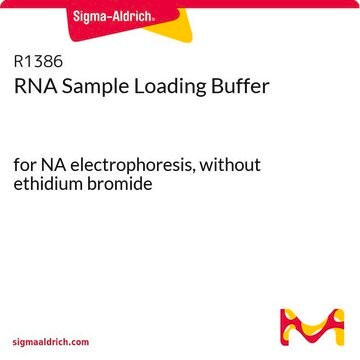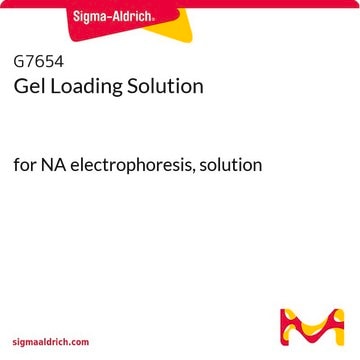R4268
RNA Sample Loading Buffer
for NA electrophoresis, with ethidium bromide (50 μg/mL)
About This Item
Productos recomendados
grade
for molecular biology
Quality Level
form
liquid
concentration
1.25 ×
technique(s)
electrophoresis: suitable
foreign activity
RNase, none detected
storage temp.
−20°C
−20°C
¿Está buscando productos similares? Visita Guía de comparación de productos
General description
Application
RNA Sample Loading Buffer has been used as a sample loading buffer in northern blot.
Components
Quantity
related product
signalword
Danger
Hazard Classifications
Acute Tox. 4 Inhalation - Carc. 1B - Muta. 2 - Repr. 1B - Skin Sens. 1 - STOT RE 2 Oral
target_organs
Blood
Storage Class
6.1C - Combustible, acute toxic Cat.3 / toxic compounds or compounds which causing chronic effects
wgk_germany
WGK 3
flash_point_f
Not applicable
flash_point_c
Not applicable
Certificados de análisis (COA)
Busque Certificados de análisis (COA) introduciendo el número de lote del producto. Los números de lote se encuentran en la etiqueta del producto después de las palabras «Lot» o «Batch»
¿Ya tiene este producto?
Encuentre la documentación para los productos que ha comprado recientemente en la Biblioteca de documentos.
Los clientes también vieron
Nuestro equipo de científicos tiene experiencia en todas las áreas de investigación: Ciencias de la vida, Ciencia de los materiales, Síntesis química, Cromatografía, Analítica y muchas otras.
Póngase en contacto con el Servicio técnico













